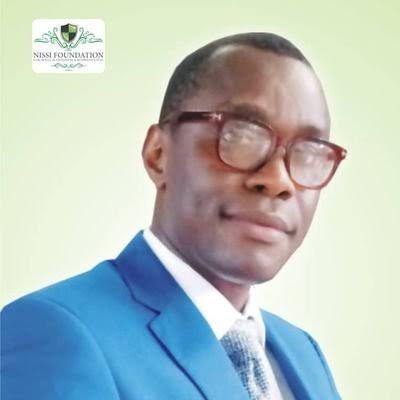“Character goes a long way to ensure we are not making the mistake of bringing to power a demi-god who would be uncontrollable and chaotic with power in their hands. Beyond competence, character makes leaders, and the best of competent leaders fail where character is missing. Character on how they treat subordinates, characters on how they treat women, youths and children, character to tribes, character to religion, character to finance, character to work ethics; we must be circumspect of these specific dispositions of a leader as it is putting the horse before the cart. “
In consideration of where we are coming from electorally, and how the series of choices we have made since the inception of democracy have always see-sawed between bad and worse, the forthcoming election calls for a more serious and deliberate disposition towards who we decide to hand over the mandate to lead us for the next four years.
At the current state of the country’s socio-political climate, no one needs to be schooled on how much leadership plays in what we call a sane society. We have seen almost all sectors in decrepit, barely managing to survive and in turn, the citizens get to suffer for it; and that tells in the ubiquitous and unprecedent poverty level in the country, the epileptic and egregious level of education, the obscured and oscillating job opportunities for the teeming population among other decays too embarrassing to reel out.
Simply a consequence of the quality of leadership we have given our nods to over time. But then, the beauty of democracy is that your nods are cycled, and in every four years, you get a chance to tweak it or perpetuate it.
The gladiators are out again, and we the juries must show up, this time, but with an insightful critical cap to adjudge who among the gladiators will at least, give us a lift from the current pitiable state of the country.
Fortunately, the range of major options we get to pick from has taken a notch addition, unlike the two-horse race bequeathed to us in the past. Thus, there are ample options to pick from, the next question is: how do we know who is best for us?
A very important question, that comes with its offshoot fact that the candidates we have do not just fall from the sky. They come with antecedents, they come with records, they come with qualities, and what not. These are what they sell which we must scrutinize and discern if it is worth our next four years.
There are three C’s that are very important in benchmarking our choice against these candidates. The first being Competence. These candidates have done one or two things in the past. They are no aliens to the political game. They have had stints to show their competence at governance. Let’s dig up and judge without bias their performances during these stints — that goes a long way to unfold their competence, and ensure we are not putting a square peg in a round hole.
Character goes a long way to ensure we are not making the mistake of bringing to power a demi-god who would be uncontrollable and chaotic with power in their hands. Beyond competence, character makes leaders, and the best of competent leaders fail where character is missing. Character on how they treat subordinates, characters on how they treat women, youths and children, character to tribes, character to religion, character to finance, character to work ethics; we must be circumspect of these specific dispositions of a leader as it is putting the horse before the cart.
Lastly, Capacity! This is wide, and we must adjudge and score whoever we are electing into power on this paradigm. Capacity on the grounds of health, capacity on the grounds of peace, capacity on the grounds of security, capacity on the grounds of media responsiveness, capacity on the grounds of economy: they must show capacity — this is not necessarily demanding they be an expert on every sector — but demonstrate you know something about everything — that goes a long way in assuring the citizens that they have a leader who they can trust on solutions. Capacity also boils down to educational and professional qualifications attained.
A leader who is vacant on these pedestals is a leader far from being capable of visionary, strategic and impactful leadership, history has taught us well enough.
Deuteronomy 1:17
You shall not show partiality in judgment; you shall hear the small and the great alike. You shall not fear man, for the judgment is God’s. The case that is too hard for you, you shall bring to me, and I will hear it.’
Dr. Ofonime Emmanuel Bassey is a Security, Peace and Conflict Resolution Coach with decades of experience in the practice and promotion of Law Enforcement, Peace and Security through the Nigeria Police and the United Nations.
He is an advocate of Peace Leadership and Child Protection.
He has served and interacted at the top level management of the Nigeria Police as well as internationally as a United Nation’s Monitor/Mentor in Kosovo, Europe.
A professor of Peace Advocacy and Conflict Resolution, Dr. O.E Bassey is a certified United Nation’s Trainer, and currently the Director of ICOF Institute of Leadership, Peace and Conflict Resolution in Africa.
With his marks well-established in Peace Leadership both in Nigeria and Africa. Currently, he is the President, NISSI Safety Management Institute: An Institute of Peace Leadership.
Presently, he is spearheading a campaign tagged “The Next Peace Leaders”, a campaign that is billed to run from 2022-2023 with a target of training 37,000 young peace leaders.
For peace and security tips, consultations and trainings, reach him via:
Facebook: Dr. O.E Bassey
LinkedIn: Dr. O.E Bassey
Twitter: Dr. O.E Bassey
WhatsApp: +2347065828892
Mail: EmmanuelBassey@gmail.com
Share your story or advertise with us: Whatsapp: +2347068606071 Email: info@newspotng.com















